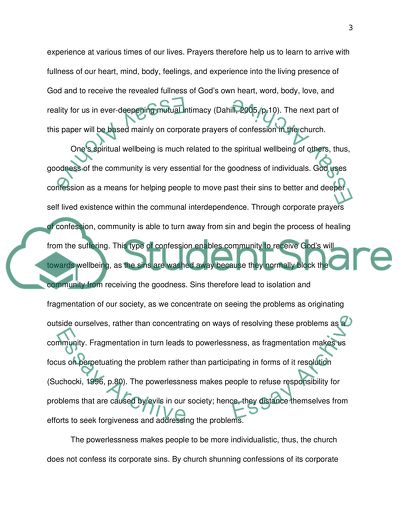Cite this document
(“Ways of Praying Essay Example | Topics and Well Written Essays - 1750 words”, n.d.)
Ways of Praying Essay Example | Topics and Well Written Essays - 1750 words. Retrieved from https://studentshare.org/education/1435088-ways-of-praying
Ways of Praying Essay Example | Topics and Well Written Essays - 1750 words. Retrieved from https://studentshare.org/education/1435088-ways-of-praying
(Ways of Praying Essay Example | Topics and Well Written Essays - 1750 Words)
Ways of Praying Essay Example | Topics and Well Written Essays - 1750 Words. https://studentshare.org/education/1435088-ways-of-praying.
Ways of Praying Essay Example | Topics and Well Written Essays - 1750 Words. https://studentshare.org/education/1435088-ways-of-praying.
“Ways of Praying Essay Example | Topics and Well Written Essays - 1750 Words”, n.d. https://studentshare.org/education/1435088-ways-of-praying.


